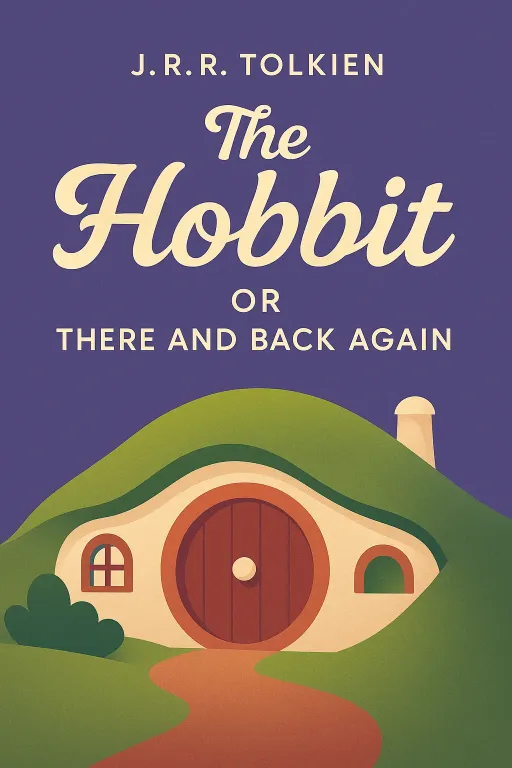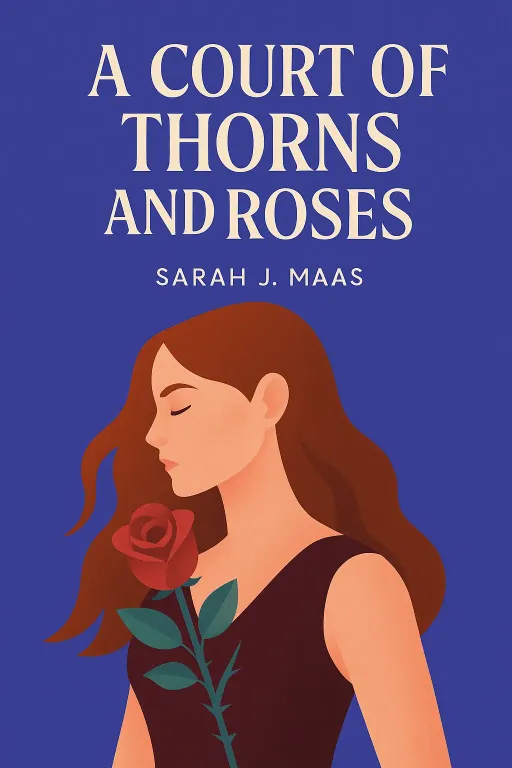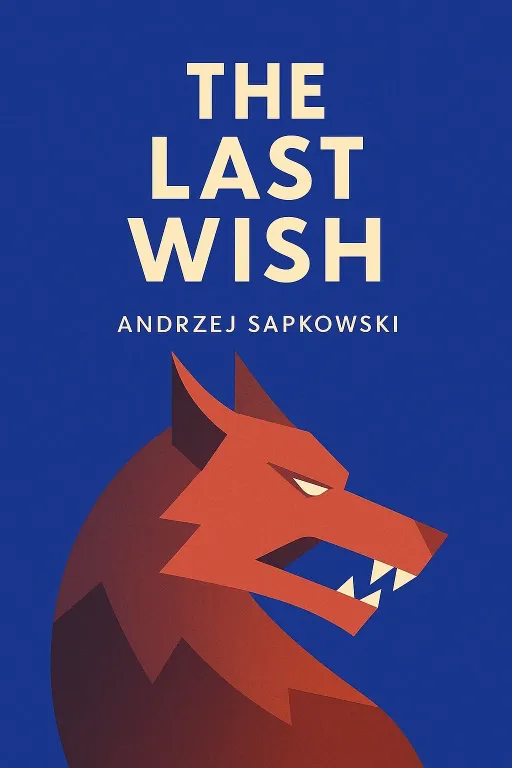
The Hobbit's True Treasure
13 minGolden Hook & Introduction
SECTION
Daniel: J.R.R. Tolkien once had a character declare that adventures are "Nasty, disturbing, uncomfortable things! Make you late for dinner!" And honestly, who can't relate to that? We build our comfortable lives, our perfect little hobbit-holes, and we value routine. But what happens when a wizard and thirteen dwarves unexpectedly show up for tea and ask you to go fight a dragon? Sophia: Exactly. And that's the magic of The Hobbit. It’s a book that, on the surface, is a grand adventure. But underneath, it's about something much more personal. It's about what treasure you find inside yourself when your comfortable world is turned completely upside down. Daniel: It’s about the battle not just with goblins and spiders, but the one inside all of us: the part that wants safety versus the part that secretly yearns for the mountains. Sophia: And that’s what we’re diving into today. We're going to tackle this classic from two different angles. First, we'll explore the idea of the 'Unexpected Hero' and what it really means to answer that disruptive call to adventure. Daniel: Then, we'll dig into a concept Tolkien was obsessed with: the 'Dragon's Sickness,' and ask what constitutes true treasure. It’s going to be a journey.
The Unexpected Hero: Deconstructing the Call to Adventure
SECTION
Daniel: So let's go back to that beginning, to Bag End, which Tolkien describes as meaning 'comfort.' Bilbo Baggins is the epitome of respectability. He loves his pantry, his waistcoat, and his quiet life. He says to Gandalf, "We are plain quiet folk and have no use for adventures." He is, through and through, a Baggins. Sophia: But Gandalf, this wandering wizard, sees something else. He sees the 'Took' side of Bilbo—the adventurous, unpredictable spirit inherited from his mother's side of the family. It’s this dormant part of him that Gandalf is there to awaken. Daniel: And the awakening is an absolute home invasion. It starts with one dwarf, Dwalin, then another, Balin, then two more, until thirteen dwarves have piled into his hobbit-hole. They're eating his seed-cakes, drinking his ale, calling for more food. They completely shatter the peace and order of his life. It’s a whirlwind of chaos. Sophia: It's the perfect metaphor for the call to adventure, isn't it? It’s never polite. It doesn't schedule a meeting. It bursts through your door, eats all your food, and demands you change your life. And Bilbo’s reaction is pure panic. He's overwhelmed. Daniel: He is! And then they start to sing. They sing of the Lonely Mountain, of lost gold, and of the dragon, Smaug. And Tolkien writes that something 'Tookish' wakes up inside Bilbo. He suddenly desires to see the great mountains, hear the pine-trees and the waterfalls, and explore the caves. For a moment, the comfort of his hobbit-hole feels less important than the call of the wild. Sophia: And Gandalf knows this. He tells the skeptical dwarves, "There is a lot more in him than you guess, and a deal more than he has any idea of himself." Gandalf isn't just hiring a burglar; he's acting as a catalyst for Bilbo's self-discovery. He’s forcing Bilbo to confront this part of himself that he’s kept neatly tucked away. It’s a push, a necessary disruption. Daniel: It’s a massive push! The next morning, Bilbo almost convinces himself it was all a bad dream. He’s relieved they’re gone. But then Gandalf shows up and basically shoves him out the door. He runs off without a hat, a walking-stick, or any money. He hasn't even got his handkerchief! He is completely unprepared. Sophia: Which is so important. His first act of adventure is an act of pure, flustered impulse. And this leads directly to his first real test as a "burglar," which, let's be honest, does not go well. Daniel: Not at all. This is the encounter with the three trolls: Tom, Bert, and William. The company is cold, wet, and hungry. They see a fire, and the dwarves, in their wisdom, send the hobbit to investigate. Bilbo finds these three enormous, foul-tempered trolls arguing about dinner. And he thinks, "A pick-pocket and a burglar he is, or will be." So he decides to try and pick the troll's pocket. Sophia: A truly terrible idea. Daniel: The worst! The troll's purse is magical and it squeaks, "’Ere, ’oo are you?" Bilbo is caught instantly. The trolls grab him, and then, one by one, they capture all the dwarves as they come looking for him. They're all tied up in sacks, and the trolls are arguing about the best way to cook them: roast them, mince them, or sit on them one by one and squash them into jelly. Sophia: So, on paper, he fails spectacularly. He gets himself and the entire company captured. Mission failed. Daniel: Right! But Gandalf shows up just in time. He hides and throws his voice, perfectly mimicking the trolls. He gets them arguing with each other, calling each other fools and idiots, until the sun comes up. And as we all know, trolls turn to stone in the sunlight. So Gandalf saves the day. Sophia: But I want to push back on the idea that Bilbo failed. Did he fail the mission? Yes. But did he fail as a developing hero? I don't think so. Heroism isn't about being perfectly competent from the start. It’s about a hobbit, who a week ago was worried about his dinner plates, deciding to try and pickpocket a giant, monstrous troll. He acted. He took a risk. That clumsy, terrified attempt is the first real spark of the hero he will become. Daniel: That's a great point. The courage isn't in the successful outcome, it's in the attempt itself. He chose to be a burglar, even if he was a terrible one at first. Sophia: And it's a lesson in itself. Real growth, real adventure, almost always begins with clumsy, imperfect, and sometimes downright embarrassing action. You have to be willing to be the hobbit caught with his hand in the troll's pocket before you can become the hobbit who faces a dragon. Daniel: It’s also just a funny detail that Gandalf’s original name in the drafts was Bladorthin. Can you imagine Bladorthin saving them? It sounds like a medication for a urinary tract infection. Sophia: (Laughs) "Ask your doctor if Bladorthin is right for you. Side effects may include a desire to meddle in the affairs of mortals and an affinity for fireworks." It definitely lacks the gravitas of 'Gandalf.'
The Dragon's Sickness: What is True Treasure?
SECTION
Sophia: And this whole journey of clumsy, troll-bothering action is in pursuit of one thing: treasure. A mountain of gold. Which brings us to the central, beautiful irony of the book. The stated goal of the quest is to acquire wealth, but the entire story is a profound warning against it. It's about what Tolkien calls 'dragon-sickness.' Daniel: Right. Smaug the dragon isn't just a monster; he's a symbol. He's had this treasure for so long that it has infected him. He doesn't use it, he doesn't enjoy it—he just lies on it, hoarding it. The treasure itself has become a disease. Sophia: And the most fascinating part of the later chapters is watching that same sickness infect Thorin Oakenshield, the noble leader of the dwarves. As they get closer to the mountain, he becomes more grim, more obsessed. Once Smaug is gone and the treasure is reclaimed, he becomes a mirror image of the dragon. He's suspicious, paranoid, and unwilling to part with a single coin, even for a just cause. Daniel: And this is where Bilbo's character shines brightest. Let's look at two key moments where Bilbo acts as a burglar. The first is when he finally sneaks into the Lonely Mountain. He creeps down the tunnel, sees the vast, sleeping dragon on his pile of gold, and he is terrified. But he forces himself to act. He snatches a single, two-handled cup and runs. Sophia: This is the act of the burglar he was hired to be. He's taking a piece of the treasure for the company, to prove the quest is possible. It’s a brave, but conventional, act of theft. Daniel: But it enrages Smaug, who flies out and nearly kills them all. Later, after Smaug has gone to attack Lake-town, the dwarves enter the hoard. And in the middle of it all, Bilbo finds something else. Not just a cup, but the Arkenstone, the 'Heart of the Mountain.' It's a magnificent gem that shines with its own inner light. Thorin has described it as being worth more than a river of gold. It is the single most valuable thing in the entire treasure. Sophia: And what does Bilbo do? He puts it in his pocket. And he doesn't tell anyone. This is his second act of theft, but the motivation is completely different. Daniel: Completely. Because later, when Thorin is in the grip of full-blown dragon-sickness, refusing to help the people of Lake-town who suffered Smaug's attack, Bilbo makes a choice. He sneaks out of the mountain at night, goes to the camp of the Men and Elves, and gives them the Arkenstone. Sophia: He gives it away! He uses the most valuable piece of treasure not to enrich himself, but as a bargaining chip for peace. He says, "It will aid you in your bargaining." He understands that its true value isn't in possessing it, but in what it can achieve—preventing a war. Daniel: And Thorin's reaction is pure dragon-sickness. When he finds out, he is incandescent with rage. He calls Bilbo a "miserable hobbit" and an "undersized burglar." He can't comprehend Bilbo's actions because he's so blinded by gold. He literally offers to trade one-fourteenth of the entire hoard for that one stone. Sophia: It's a perfect illustration of the theme. Thorin, the great warrior king, is impoverished by his greed. And Bilbo, the small hobbit who started the journey longing for his armchair, is the only one who walks away from the mountain truly rich. He's gained courage, wisdom, and a deep understanding of what matters. He's the only one who isn't sick. Daniel: It's also a fascinating look at how Tolkien himself viewed these things. It's a well-known story among fans that he started creating this entire universe simply because he loved inventing languages and he needed people to speak them. He built an entire world, a mythology for England, as a home for his linguistic passion. The world came first, the stories second. Sophia: He built the iceberg to show the tip, as Hemingway would say. And Tolkien built Antarctica. That depth is why these stories feel so real. And it's why the meaning of objects, like the Arkenstone or the Ring, can shift and deepen. Daniel: Absolutely. In the first edition of The Hobbit, Gollum is much more polite. He actually bets the ring in the riddle game, loses fairly, and shows Bilbo the way out. But as Tolkien was writing The Lord of the Rings, he realized the Ring needed to be a far more sinister and powerful object. So he went back and rewrote the chapter to what we know today—a desperate, dangerous encounter where Bilbo's life is on the line. Sophia: He understood, just as Bilbo did with the Arkenstone, that the meaning of an object, its narrative weight, is far more valuable than its surface-level function. The Ring couldn't just be a trinket; it had to be a corrupting force. And Bilbo couldn't just be a thief; he had to be a peacemaker.
Synthesis & Takeaways
SECTION
Daniel: So, when you put it all together, Bilbo starts as a hobbit who thinks adventure is just a way to be late for dinner, and he ends as someone who understands that a mountain of gold isn't worth a single friendship. Sophia: He really does. His final conversation with the dying Thorin is one of the most moving parts of the book. Thorin, finally free of the dragon-sickness, says, "If more of us valued food and cheer and song above hoarded gold, it would be a merrier world." He finally gets it, but only at the very end. Bilbo learned that lesson through his actions. Daniel: He answered the call of his 'Took' side, and in doing so, he didn't just find treasure, he completely redefined what treasure even means. The subtitle of the book is 'There and Back Again,' and that 'Back Again' part is so crucial. He returns to his hobbit-hole, but he's not the same hobbit who left. He's lost his reputation for respectability, but he's gained the entire world. Sophia: He finds his home being auctioned off because he was presumed dead! And he has to buy back his own spoons. But he doesn't mind. He's content. He has his memories, his stories, and a newfound appreciation for both the comfort of home and the thrill of the road. He integrated the Baggins and the Took. Daniel: It's a beautiful arc. And it leaves you wondering... we all have that comfortable Baggins side, the part of us that just wants a full pantry and a predictable schedule. But what's your 'Took' side calling you to do? Sophia: And what 'nasty, disturbing, uncomfortable' adventure might be waiting if you just answered the door?

